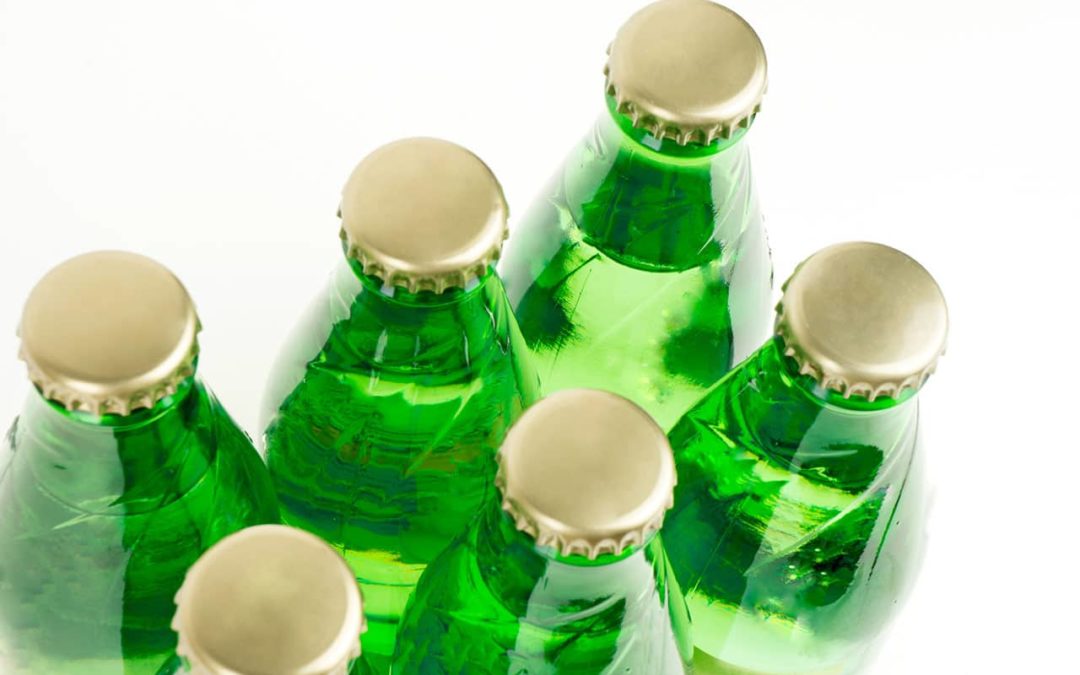Last time we covered sodas, specifically Coca-Cola Classic and exactly what it is doing to cause problems for your oral health. I wanted to start with the low hanging fruit of beverages that are bad for your oral health. Coca-Cola is filled with sugar (36 grams in a 12 oz can) and has added phosphoric acid giving it a strikingly low pH making it very acidic, wearing away at your teeth enamel. But seltzer water is different right? It doesn’t have added sugar, it has zero sugar, and it doesn’t have any phosphoric acid. So we should be in the clear, right?
A lot of articles online would say absolutely not. It is high time for you to completely remove this beverage from your diet in the name of oral health. We aren’t about to tell you to stop drinking any beverage you enjoy (unless you are in the habit of frequently swishing your mouth out with lemon juice, that can really damage your teeth) but we will advocate for wise drinking habits and moderation around those beverages that have a heightened risk for tooth decay or enamel dissolving. So why are people saying you should stop drinking bubbly flavored water?
There are only two complaints I can find that oral health advocates have with seltzer water, the primary problem is added carbonic acid, and the second problem is calcium deficient homeostasis (this part is a bit confusing so we’ll save it for the end).
Carbonic acid is what makes drinks fizzy. In carbonated water this is created by dissolving minerals such as potassium bicarbonate, sodium bicarbonate, sodium citrate, or potassium sulfate. These create carbon dioxide gas in the water which gives the nice bubbles that are so pleasant to drink.
Here are some carbonated water type beverages whose pH was sampled by the American Dental Association in their exhaustive 2016 beverage study:
- Schweppes Tonic Water – pH of 2.54 – Highly Erosive
- Izze Sparkling Blackberry – 3.28 – Erosive
- Perrier carbonated mineral water – 5.25 – Minimally Erosive
- Unfortunately this study didn’t include any of my personal favorite stelzer brand, LaCroix, and I cannot find accurate pH information online. It’s safe to say it’s pH varies based on flavor, but is less than Perrier on average and more than Schweppes.
These numbers are highly varied, so we should take a deeper look at what’s going on. Here are the ingredients of these beverages:
- Schweppes Tonic Water
- Carbonated Water, Sugar, Citric Acid, Acidity Regulator (Sodium Citrate), Flavourings (Including Quinine), Sweetener (Aspartame, Acesulfame K). Contains a source of Phenylalanine.
- Izze Sparkling Blackberry
- SPARKLING WATER, APPLE JUICE CONCENTRATE, WHITE GRAPE JUICE CONCENTRATE, NATURAL FLAVOR, BLACKBERRY JUICE CONCENTRATE, RASPBERRY JUICE CONCENTRATE, CITRIC ACID, RED GRAPE JUICE CONCENTRATE (COLOR), ACEROLA JUICE CONCENTRATE, ASCORBIC ACID (VITAMIN C), NIACINAMIDE, PYRIDOXINE HYDROCHLORIDE (VITAMIN B6)
- Perrier carbonated mineral water
- Carbonated mineral water
- LaCroix
- Carbonated Water, Natural Flavor
So the beverages with more ingredients, especially the addition of acids and acid stabilizers, make the beverage more acidic. That makes sense. A study from the University of Birmingham Dental Hospital came to the same conclusion in their paper The erosive potential of flavored sparkling water drinks, concluding with the recommendation that flavored beverages not be considered the same as plain water as their added acids can contribute to tooth decay.
Perrier is seriously not that bad for your teeth. In the ADA’s study, only 2 beverages out of 379 tested had a higher pH: tap water, and Aquafina bottled water, and Dasani bottled water actually had a lower pH! McGill University conducted a study of sparkling water pH and collected further details, showing the beverages to not fall below a pH of 4.4. This brings us to the second problem with sparkling water, which happens to be a problem with nearly every beverage, which means it’s one of those problems not worth spending too much time worrying about. Any beverage with a pH below 5.5 is in some minimal way harming your teeth. This is because a pH below 5.5 allows for an environment for the movement of calcium. Most beverages do not contain dissolved calcium, so through osmosis, calcium is removed from your teeth to balance with the water. This process is very slow and is naturally replenished, but can cause issues if it happens very regularly, or if the pH of your mouth is routinely an acidic environment.
There are a lot of articles online attempting to scare you away from your favorite soda alternative. Scary buzzword filled articles from the Atlantic and Huffington Post both cite the studies I have above, but drawing the conclusion that these beverages are bad and should be avoided for fear of serious tooth loss. This is a problem of moderation. If you are drinking six cans of LaCroix a day, it may be a good idea to cut back a bit, but you aren’t seriously damaging your tooth enamel, words like that should be reserved for beverages with high sugar content and pH in a range below 3.0. Since seltzer water does not contain sugar, and regularly sports high pH’s, with some even above 5, they are a great alternative to traditional soda beverages like Coca-Cola Classic (that we covered in our last blog post). Please don’t take my word for it, or trust the sea of bad journalism surrounding this subject. I’ve included links above, but again, here are the studies I’ve cited. Read them yourself and come to your own conclusions:
- The pH of Beverages in the United States (American Dental Association)
- The erosive potential of flavoured sparkling water drinks (University of Birmingham)
- Is Carbonated Water Bad for Your Teeth? (McGill University)
Next week we cover Orange Juice!

